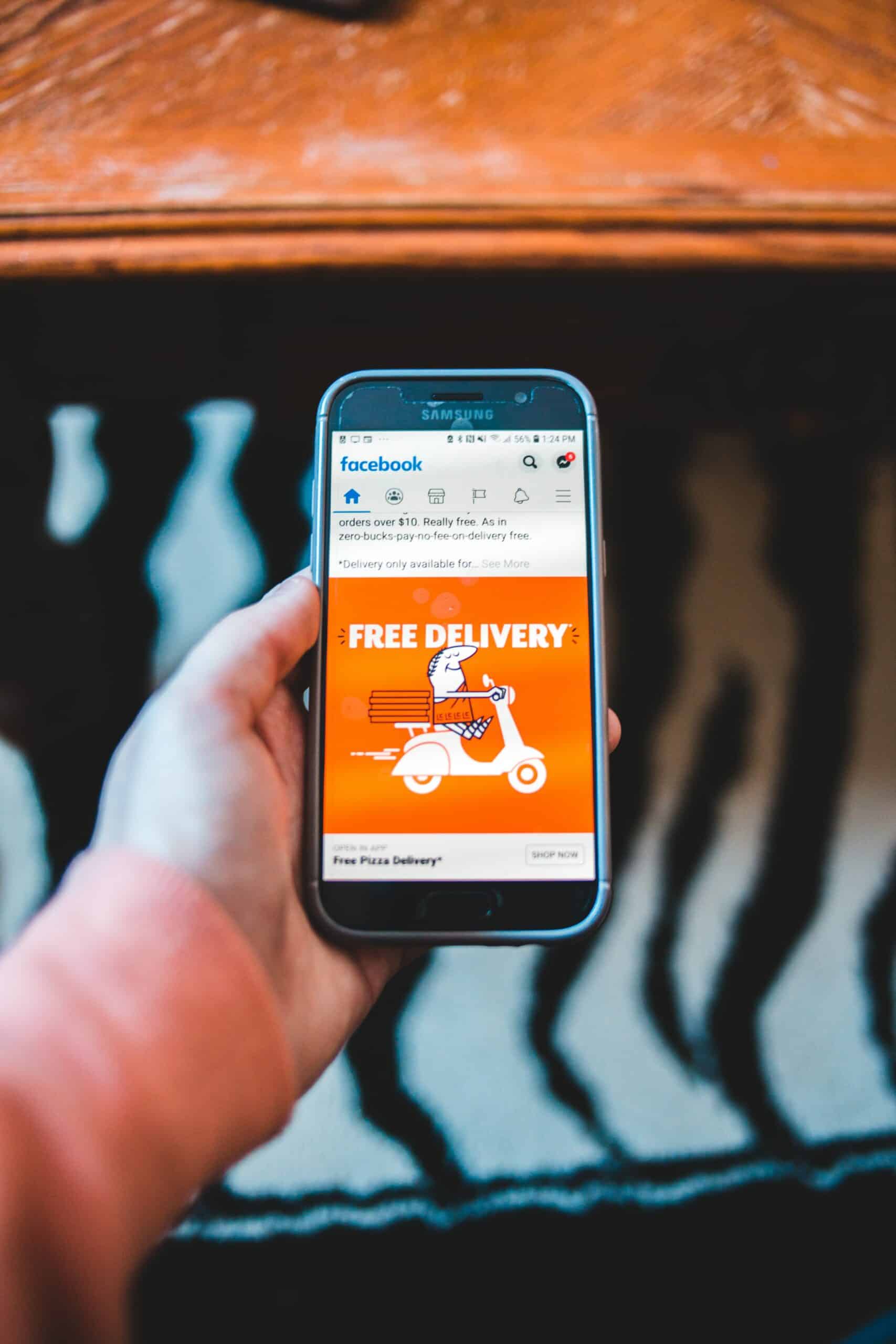Convenience culture is all around us. We can’t escape it. From the moment we wake up to when we go to bed, convenience is there, trying to suck us in.
For many years, I’ve been a flag bearer for convenience, especially when it comes to leveraging technology to automate our lives.
I now recognise, however, that we have become so reliant on convenience that we are no longer aware of the consequences.
In this post, I’ll explore the pros and cons of convenience culture. I’ll also share 15 simple actions to reduce reliance on convenience and live a more fulfilling and eco-friendly life.
What is convenience culture?
Convenience culture refers to how modern society is increasingly geared towards ease and instant gratification. It has origins in the post-World War II era, when Americans began to enjoy a period of unprecedented prosperity.
This newfound wealth led to a boom in the consumer culture, as people increasingly looked for ways to simplify and streamline their lives.
Nowadays, convenience culture can be seen as a reaction to this fast-paced, materialistic lifestyle. Rather than embracing the traditional values of hard work and thrift, the allure of convenience encourages people to seek out shortcuts.
This shift can be traced to the rise of fast-food restaurants, drive-thru services, and prefabricated homes.
And in a world dominated by apps and tech companies, we can now order take-out with the click of a button, get our groceries delivered to our doorsteps, swipe left to meet the partner of our dreams, and stream movies and TV shows at any time of day or night.

Everywhere we look, there are opportunities for us to save time and make our lives easier. It’s a pretty incredible proposition! Let’s look at why we’re all so hooked on convenience in more detail.
The pros of convenience culture
In today’s world, convenience is king — which has led to the rise of several businesses that cater to our every whim.
There are now companies that will walk your dog, pick up your dry cleaning, and even assemble your Ikea furniture.
While some people see this as a lazy way of life, there are some undeniable benefits.
Time
It’s more important than ever to make the most of our time. Fortunately, convenience culture has come to the rescue, offering time-saving products and services.
From frozen meals that can be quickly reheated to 24/7 convenience stores that eliminate the need for planning ahead, we now have more options than ever before to save time.
Less stress
We’re constantly bombarded with work, family, and social media demands, and it can be tough to find time to relax.
More and more supermarkets are offering pre-chopped veggies that take away the need for chopping at home.
Or, you can now shop for sustainable clothing online for your exact sizing without trawling through local stores, which probably don’t have what you’re looking for anyway.
Better products and services
Another benefit of a convenience culture is that it often leads to better quality products and services that save us time and hassle. This is because businesses know they need to compete on convenience to survive.
Consider the online dating industry. In the past, people often had to rely on friends and family members to set them up on blind dates. Thanks to dating apps and websites, we can quickly and easily connect with potential partners who share our interests and values.
Similarly, self-driving cars represent the latest development in a long history of convenience-oriented transportation innovations, from the first cars with automatic transmissions to ride-sharing apps like Uber and Lyft.
And, of course, we can have whatever we want to be delivered to our doorsteps with just a few clicks. And businesses are responding by offering faster shipping times and more flexible return policies. The short video below encapsulates how we expect more convenience from companies at unprecedented levels.

At this point, you may be wondering, how is this a bad thing? More time, less stress and better products and services. This is human advancement. Yes, it is. But at what cost? Let’s look at how destructive convenience culture can be, especially to the planet.
The cons of convenience culture
While there is no denying the benefits of this so-called convenience culture, it comes with a number of drawbacks.
Health
A culture of convenience has come at a cost to our health and wellbeing. For one thing, it has made us more sedentary. Instead of walking to the store or riding our bikes, we can now have everything delivered to our doorstep. This lack of physical activity has contributed to obesity and other chronic health conditions.
In addition, the ready availability of processed and junk food has led to poor diets and increased rates of heart disease and diabetes. I remember my teenage years of getting multiple refills of soft drinks at the movies just because I could. Yikes.
And with ubiquitous social media and 24/7 news cycles, we are constantly bombarded with information and stimuli, leading to higher levels of stress and anxiety.

Loneliness
In today’s culture of convenience, it’s easy to go for hours or even days without speaking to another human being.
Between email, text messaging, and social media, we can communicate with others without ever having to leave our homes.
While this increased connectivity has its advantages, it also has a downside. For example, studies have shown that loneliness can lead to mental health problems such as anxiety and depression.
In addition, research suggests that social isolation can have physical health consequences, such as a weakened immune system and an increased risk for heart disease.
As our lives become more and more convenient, it’s essential to make an effort to connect with others in person. Whether it’s going for a walk with a friend or attending a community event, taking the time to interact with others can help combat the isolation that convenience culture can create.
Addiction
It’s easy to become addicted to the conveniences that make our lives easier. From shopping on credit to gambling, we often pursue instant gratification without thinking about the long-term consequences.
While these addictions can provide a temporary escape from reality, they can also lead to financial ruin, relationship problems, and mental and physical health issues. In some cases, they can even be deadly.
For instance, people addicted to shopping may rack up vast amounts of debt and clutter, while those addicted to gambling may gamble away their life savings.
Additionally, addictions can cause people to neglect their responsibilities or lose interest in activities that once brought them joy.
The environment
Finally, a convenience culture is also detrimental to the environment. The more we outsource and purchase convenience items, the more resources we consume and the more waste we produce.
Single-use packaging from water bottles and home delivery meals creates a significant amount of waste, much of which ends up in landfills.
Furthermore, the development of supermarkets and fast-food chains has led to a considerable increase in food waste, as consumers demand perfectly presented produce that is available all year round.
The environmental impact of convenience culture is becoming increasingly difficult to ignore, and it is clear that we need to find a more sustainable way of living.
So there you have it: convenience culture isn’t all it’s cracked up to be.
What’s the solution here? Go back to complete self-sufficiency without any technological developments?

Sitting on the ground and foraging for food is something that many of us have to do because we don’t have other options. But it’s not a feasible solution if you have the privilege of reading this article.
Next up, we get into some simple suggestions to reduce your reliance on convenience.
15 simple actions to reduce your dependence on convenience culture
There are many ways to reduce your reliance on convenience culture without making dramatic stone age changes. Here are 15 ways to help you get started:
- Bring your own coffee mug to the coffee shop
- Delete your credit card from online shopping services, including Amazon, Google Pay, Apple Pay, Afterpay etc.
- Make your own lunch instead of buying from a food truck or restaurant
- Use public transportation or ride a bike instead of taking taxis or driving yourself
- Rent textbooks from the library or online rather than purchasing them
- Buy in bulk to save money and reduce packaging waste
- Grow your own food or shop at farmers’ markets
- Make your own cleaning products using natural ingredients
- Repair clothes instead of throwing them away
- Compost your food scraps
- Bring a water bottle with you wherever you go instead of buying bottled water
- Borrow items from friends and family instead of buying new ones
- Book an off-grid tiny house or camping experience for your next vacation
- Support businesses that are eco-friendly and ethical
- Use less water by taking shorter showers, doing laundry less often, and watering your plants during the cooler hours of the day
If you want more ideas, check out this post with over 100 sustainable living tips, which will also help in reducing your dependency on convenience.
I hope these tips help you reduce your reliance on a convenience culture. Remember, small changes can have a significant impact.
What other ways do you suggest reducing convenience culture? Let me know in the comments below.





